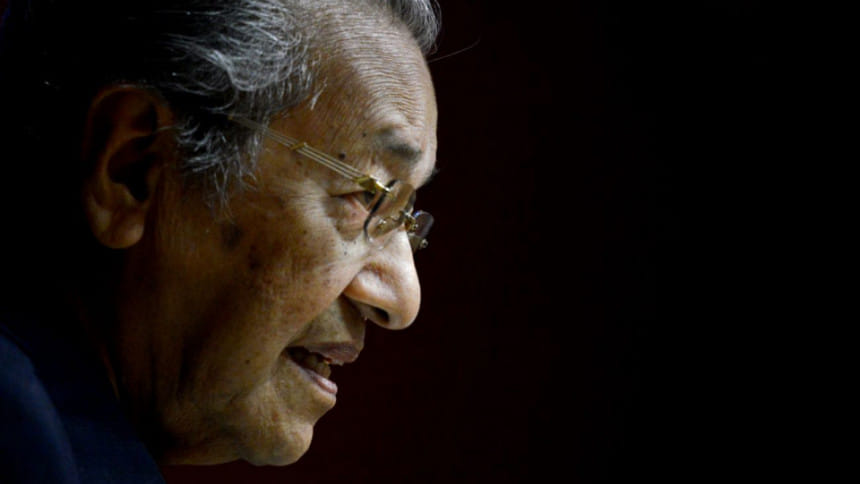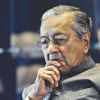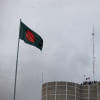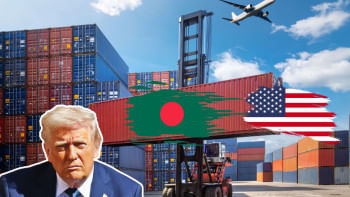Forster's third democratic cheer: Mahathir (as a symbol)?

EM Forster, almost a lone-wolf democracy crusader between the two world wars, confronted as unpalatable a European playground as many African, Asian, and Latin American countries striving to convince others of their democratic claims face today: an uphill battle in which the institutionalised forces against democracy, such as extreme rightists/leftists and militarism, were usually at least as strong as those forces institutionalised to establish democracy, if not more. In one of his capstone commentaries, Two Cheers for Democracy (1951), he extolled the two virtues: admitting variety, and permitting criticism. He often stopped short of spelling out a third, at least in that volume.
Mahathir Mohammad's victory in Malaysia may symbolise what that third institutional circumstance may be today, particularly across Africa, Asia, and Latin America, but no less relevant for populism-driven mature democracies drifting in the wrong direction: sanctifying watchdogs.
In Mahathir's case, it is not just the corruption that evicted Najib Razak from the democratic fold, but also a personal about-turn in becoming an unflinching democracy practitioner from having been the authoritarian moderniser so eulogised in his part of the world (as in Indonesia, Singapore, South Korea and Thailand). At 92, another reversal from Mahathir is unlikely, which is not the same as saying Malaysia will not back-track to its authoritarian past. But Mahathir deserves two different cheers: for modernising Malaysia, without which a democratic mindset might not have matured sufficiently among voters to challenge institutionalised corruption and a monolithic party once wielded by Mahathir; and attracting a youth not even born during Mahathir's previous tenure, thus blindly plunging into the unknown behind a candidate who became the world's oldest elected official.
If corruption sealed the deal against Najib, as evidence increasingly confirms, then tackling it successfully, at least in this first round, must be the fresh air democracy supporters globally want to breathe at this juncture. It is a practice with no national, cultural, racial, religious, political, or social identity, with the only safe measurement yardstick being the length, breadth, and depth of its prevalence—in other words, the relative strength of those two forces: corruption-controlling versus corruption-encouraging institutions.
With democracy having a very bad press today in both mature and fledgling democratic countries, given the outbursts of populism, adventurism, brinkmanship, and bluff everywhere, Mahathir's victory could serve as the springtime of a global democratic revival. Najib aside, South Korea's Park Geun-hye languishes in jail, as does Luiz Inácio Lula da Silva in Brazil, while Israel's Benjamin Netanyahu, Pakistan's Nawaz Sharif, and South Africa's Jacob Zuma typify the corrupted culprits on the ropes. With corruption outlasting communism as the real cancer corroding democracy, the time may be ripe for eliciting that third democratic "cheer": the ballot box may be delivering poorly in some cases, as with Donald J Trump in the United States, where only an electoral college rule pushed him over the finishing line; or delivering mixed messages, as in a Germany so torn between progressives and populists that one of the most admired European politicians cannot coherently form a government; or a Philippines where murdering alleged, rather than actual, drug-traffickers is now a norm; or a hitherto secular India sliding towards religious fanaticism/fundamentalism on the back of a convincing majority vote; or even a democracy ceasing to deliver at all, as possibly in Egypt, Mexico, and Nicaragua, among others, where the military, corporatism, and demagoguery, respectively, strangle a democracy desirous population. Resurging democracy in Malaysia should be morale-boost: both veterans and the youth may have different lifestyles and mindsets, but they worked as one. With Mahathir releasing his own nemesis, Anwar Ibrahim, from jail, democracy may get off to a resounding start as new constituencies (his supporters) come out of the cracks.
External vigilance may be the price of liberty, as John Philpot Curran, Thomas Jefferson, and Wendell Phillips, among others, noted, but nowhere is it more in demand than to sustain democracy. It is not Mahathir's age per se, but the coalition which led to his victory. Birds of too many feathers may be the hardest flock to keep united for long spells, yet is a feature most consistent with democracy, given Forster's first two cheers. Setting aside such clichés as "After Mahathir, the deluge" (essentially reaffirming the first Forster "cheer"), work must be quickly done to streamline the various groups for long enough to resolve the 1MDB (Malaysia Development Berhard) crisis legally (not politically), then punish Najib, not out of vendetta, but for breaches of law. All these must be done against the inevitable growth of countervailing party interests (Forster's second "cheer"). The maturity the third democratic "cheer" requires may be the most pivotal a posteriori element, as much for Malaysians, as for Brazilians, Israelis, Pakistanis, South Africans, and South Koreans on the line today, as well as those headed for their own election, including Bangladesh and Iraq this year, or Algeria, Greece, India, Indonesia, Nigeria, South Africa next year, among a host of others. That may be a very unpredictable bunch; but if Mahathir could upturn the tables, so can these countries: if not now, someday soon, given the message we hear.
Ultimately, corruption-correction before democracy is devoured must be matched by how smoothly the democracy learning-curve blends with the obvious punishments meted out in transitional countries after epochal moments. We remember how, after the Arab Spring fizzled in all but Tunisia, Egypt returned to military rule, and Syria moved towards outright genocide with its authoritarian tools, much like what Nobel Peace Prize winner Aung San Suu Kyi is doing in Myanmar for a different reason with her democratic instruments. The blunt question boils down to how much must we forgive past transgressors, like Mahathir, even in their hour of triumph, if they deliver the democracy magic, even if briefly? The equally blunt answer should be to go the full nine-yards: that is, completely. A complete transformation from dictatorship to democracy represents the very heart, mind, and soul of the third democratic cheer, since democracy alone supplies the most forgive-and-forget atmosphere among all governmental types.
Democracy still remains far removed from the resurgent 1990s, when the fourth large-scale outburst (or "wave") in modern history took place. We have rarely been as close to triumphing over terrorism since then as now, and with the likes of Kim Jong-un also shedding some of his dictatorial attachments, democracy must still reckon with three jeering constituencies while celebrating its three cheers: populism in advanced democratic countries; democratically elected mavericks of the Rodrigo Roa Duterte/Benjamin Netanyahu types, since this is a game requiring that maturity; and precipitously hinging foreign policy imperatives to the domestically-driven propensities and prospects of democracy. Democracy is not dead by a long shot, but its silent soldiers must speak now, or they might have to hold their tongues forever.
Dr Imtiaz A Hussain is the head of Global Studies & Governance Program at Independent University, Bangladesh.










Comments